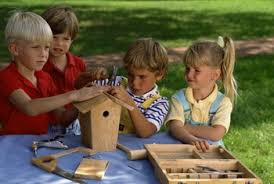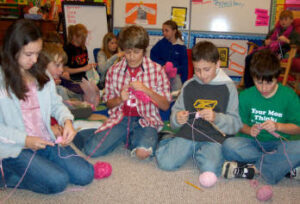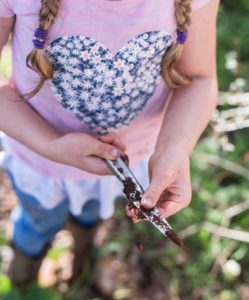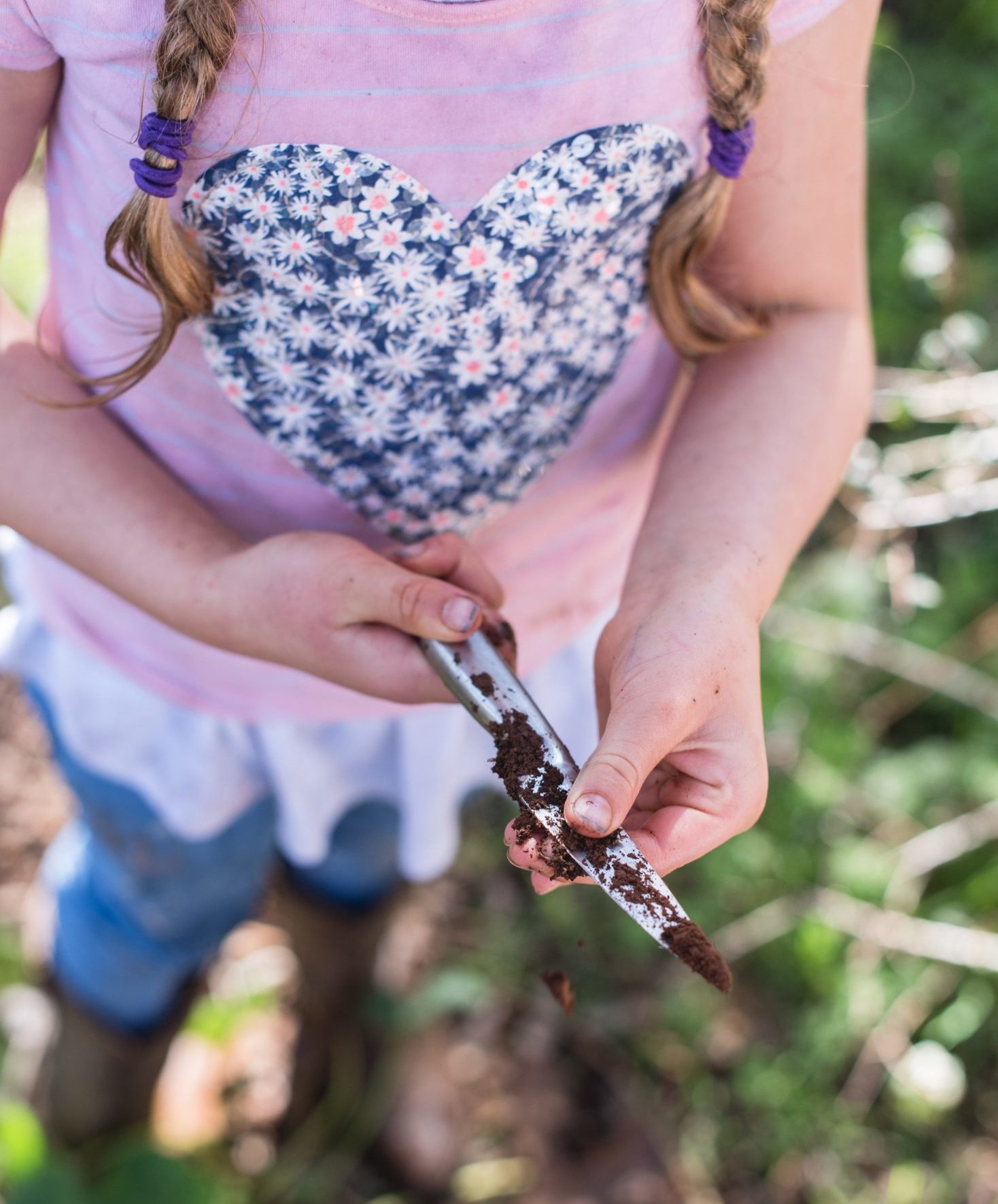How Hobbies Benefit a Child’s Personal Growth
How Hobbies Benefit a Child’s Personal Growth
Some parents may be under the impression that children having their own hobbies may distract from schoolwork or extracurricular activities, yet the opposite is most often true. While some playtime and hobbies may not appear very beneficial on the surface, there is a wide range of observed advantages. For parents interested in why hobbies are important, take a moment to read about the many benefits of your children developing hobbies and interests of their own.
According to many developmental studies, having a hobby as a child is a fun and beneficial way to not only increase self-esteem but also to discover new talents and skills without pressure. Crafts and children’s hobbies can encourage a lifelong interest. President Franklin D. Roosevelt collected stamps his entire life. As a child, when he became paralyzed with polio in his late 30s and even when he was president, he spent time each day with stamps. They connected him to the world and engaged his creativity – he would sketch ideas for stamps and give them to the Postmaster General! If your child takes up a hobby, we can’t promise that he or she will end up as President of the United States, but it could happen!
Encouraging Your Child’s Creativity
Some children are natural self-starters and will explore their own interests without too much prompting. They might head out into the park or garden and collect interesting stones, leaves, and flowers and lay out their treasures at home, building basic organizational skills. Other children might open up kitchen cupboards and pull out various ingredients, creating their own unique recipes, which, whether edible or not, can give them a huge sense of accomplishment.
Other interests are often taken up after watching parents or caregivers partake in their own hobbies. Examples of these could include the following rewarding activities:
Woodwork
Working with tangible objects is beneficial to brain development. This could be working with wood under the supervision of an adult. Woodworking helps a child become adept with tools, to understand the importance of measurement, and hand-eye coordination is improved and developed. A good way to encourage continued interest in woodwork is to allocate or give certain tools to a youngster (along with protective goggles). Adding a custom stick-on label to a specific tool or toolbox will develop feelings of ownership and continued investment of time and interest.
Many woodworking hobby projects are done in a group setting or workshop, and having “my” tools with customized labeling makes sure the tools come back home after use.

KNITTING OR CROCHETING
Another wonderful hobby for children is learning to knit or crochet. The process of beginning with a ball of yarn and needles to create a finished item that’s completely different from the raw materials gives a warm feeling of satisfaction and accomplishment. The fact that it may not be perfect adds to the charm! Many of our own parents kept our first efforts as keepsakes that come with loving memories—creating a unique custom woven label that can be attached to the finished item, enhancing the sense of accomplishment, and adding an extra special touch. For example, a custom fabric label that says “Handmade By” and the child’s name will bring back happy childhood memories when they are older.

GARDENING
Some researchers think that there is nothing better than getting children out digging in the dirt. There are numerous studies that demonstrate the therapeutic benefits of gardening. One such study showed that children who participate in gardening score higher in science achievement than those who don’t. With a small bed of dirt or a large pot on a deck or patio, it is relatively easy to interest children in the outdoors. There is something magical in planting seeds and exercising patience as you watch the results. In addition, it sparks questions about why plants need sun, why plants drink water, and what makes soil “good” for growing living things. Valuable lessons in healthy eating can be demonstrated by growing vegetables. Radishes are a great place to start since they produce something that can be eaten in just a few weeks.

Children’s Hobbies Can Help Them Develop Life Skills
If you’re still wondering why hobbies are important, there are many more benefits of hobbies apart from cultivating creativity in children. As children partake in hobbies, they can grow many other life skills that will be useful as they grow up. Here are some of the many developmental advantages kids experience as they create, play, and discover during their hobbies.
Building Social Skills
Some children have difficulty making new friends to socialize with, but hobbies can help them form new connections they may not have made otherwise. Meeting others of and around their age who harbor the same hobbies and interests will help them create new friendships and grant them newfound experience in doing so. As a result, hobby development will improve a child’s social skills that they can use for years to come to make new friends and relationships.
Finding Their Passion
Permitting children to explore new fields can help them pursue endeavors separate from their studies or busy life and discover new interests. Granting them the choice to partake in an activity they truly love can lead to them developing a lifelong passion. For instance, children who hone their creativity through gardening may one day start a community garden or pursue a career in botany. Planting seeds for future careers is just one important reason why hobbies are important for children.
Cultivating Lifelong Skills
While some children’s hobbies may seem like little more than playtime that makes parents question why hobbies are important, the skills children develop during them can blossom into skills that will last a lifetime. Knitting and crocheting, for instance, will teach children to take their time, while gardening can teach them patience while waiting for their plants to grow. Some hobbies can also improve their time management skills, organizational prowess, and problem-solving expertise, among many others, which are all beneficial in numerous fields as an adult.
A Form of Relaxation
Another reason hobbies are important for children is that they can benefit their emotional well-being. Studies have demonstrated that individuals who participate in hobbies are less likely to suffer from stress and other negative mental health, and the same holds true for children. Giving kids an opportunity to step away from their studies and harsh life and indulge in an activity they genuinely enjoy can help them refocus and relax. That way, they’ll be rejuvenated and prepared to face the next day with a smile on their face.
Help Your Child’s Hobby Development Today!
Giving a child their own gardening supplies lends a more permanent feeling of ownership of the hobby. Custom labels can be attached to their own trowels, rakes, and watering can, which creates a valuable lesson in taking care of tools. A custom iron-on label with the child’s name printed on it can be attached to fabric garden aprons and gloves, which can be proudly placed alongside the adult’s gardening kit.
One of the most exciting things about the children’s hobbies we’ve listed here is that they are not electronic games. They are non-digital experiences that give children a respite from excessive screen time. Hobbies, as they do for adults, give children a much-needed break from their busy lives. With the right encouragement, children’s hobbies will remain a fun and enjoyable part of their futures and keep balance in their lives.

